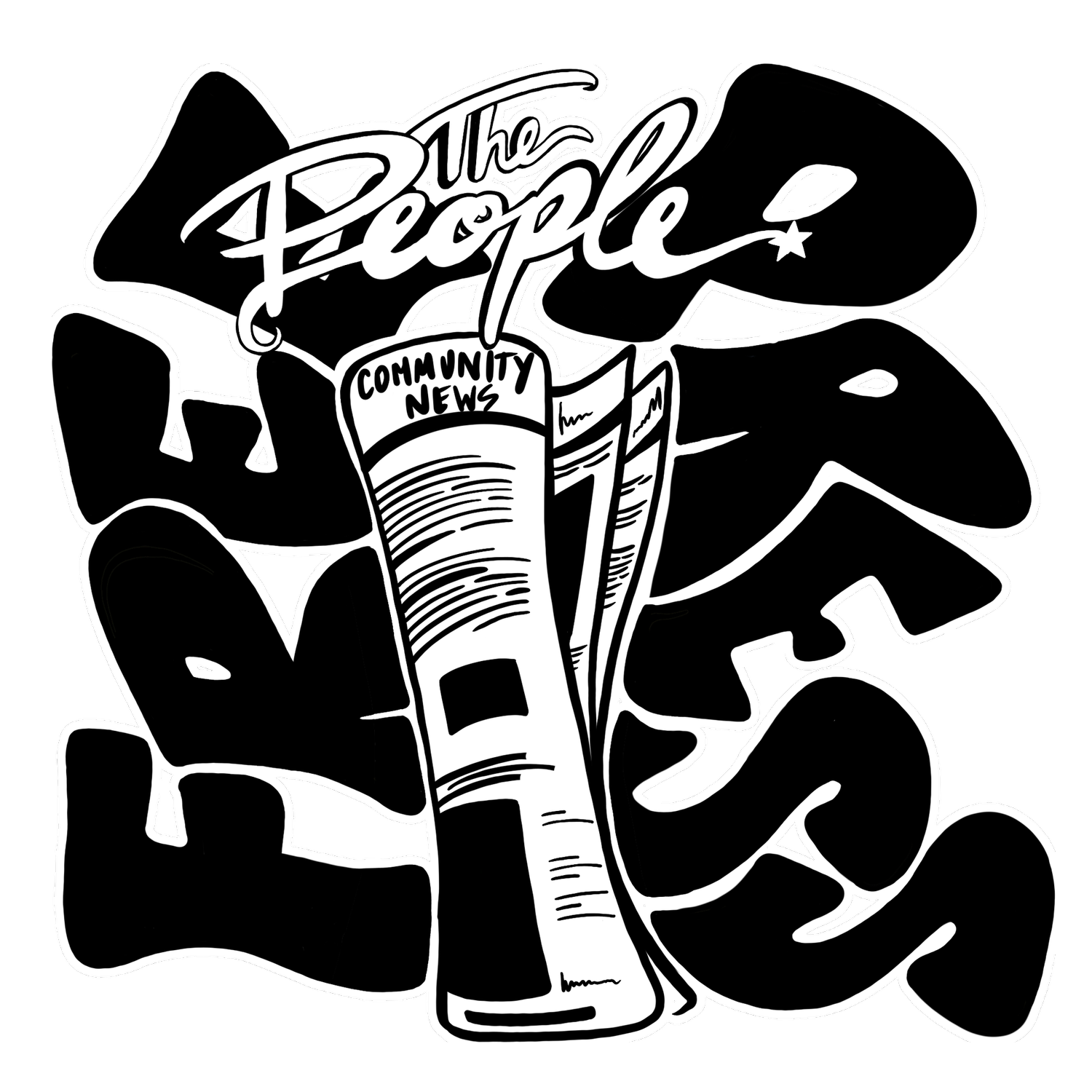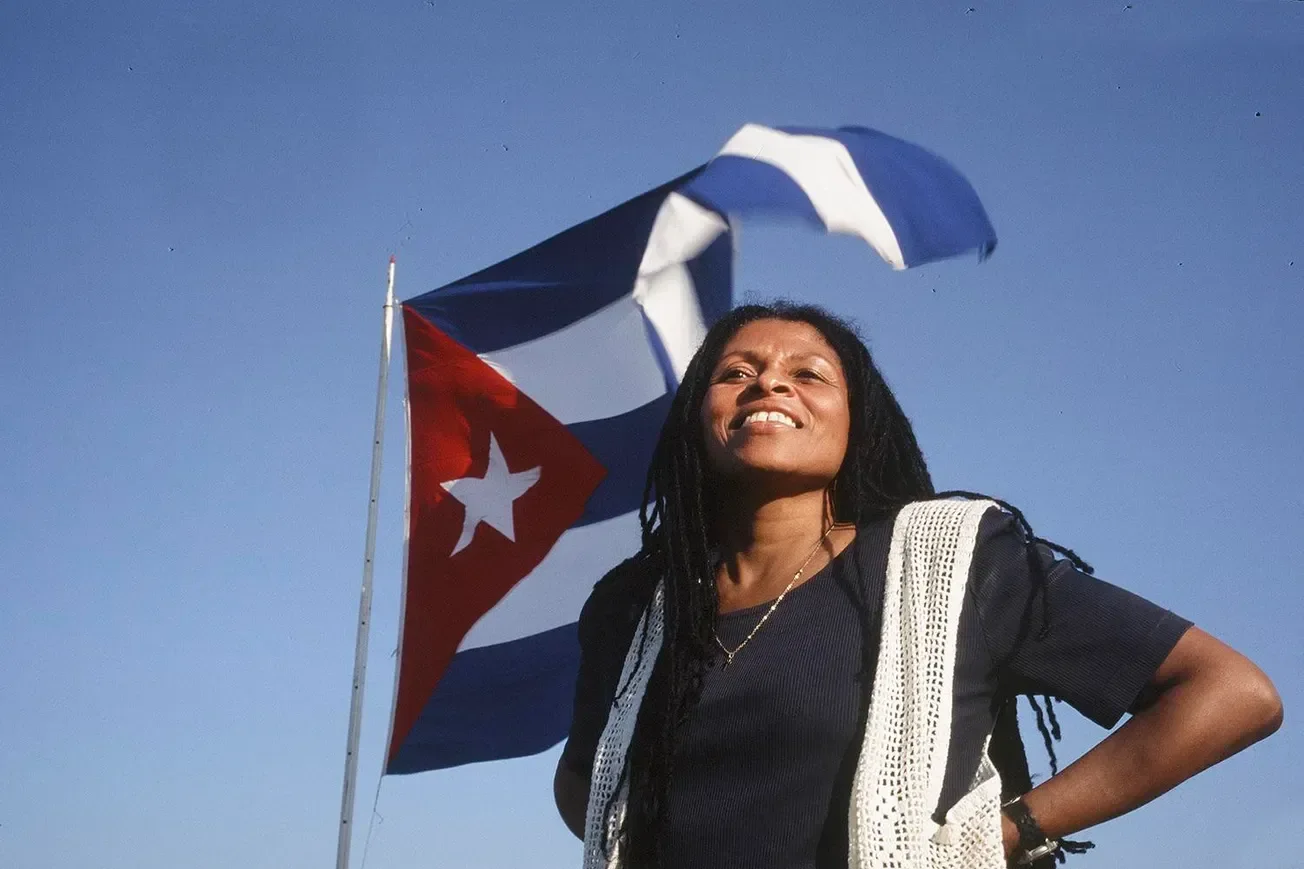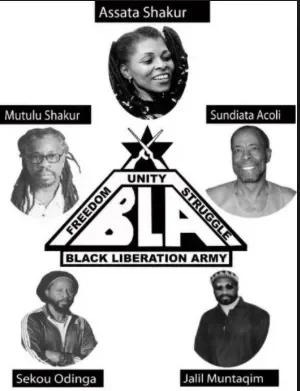Written by Abbas Muntaqim
R/evolutionary love is a transformative energy that has the inertia capable of defeating goliaths multiple times over. It is a love that is a byproduct of love for God—which produces an unshakable faith capable of defeating armies of shaytans. When reflecting on Assata’s life, she is a prime example of someone who embodied r/evolutionary love.
This is a love so deep that it can even reach the unknown valleys of the deep ocean. This type of love is not boxed in by the hollow enclaves of the material world, where individualism, egoism, and consumerism run supreme. Rather, it is a love that is transformed into the material world when spirits, souls, and hearts bond together in unison for a common love of God and the people He created.
It was this type of love that broke the chains of the neo-slave system off of Assata and allowed her to be free. She evaded the noose of domestic colonialism due to the willingness of her comrades to make the sacrifices to get her out—sacrifices powered by such love. The Caribbean Sea, where many of our unknown ancestors became martyrs, merged with the strength of the Cuban Revolution, which refused to give her up. This produced an international revolutionary love that bound the hearts of New Afrikans to the Cuban people, where not even the depths of the ocean could stop the bonds of solidarity—and it allowed Assata to have refuge from the harpoon of imperialism.
Assata was a product of comrades. And comrades too are produced from revolutionary love. There can be no camaraderie without revolutionary love, as it is the basis that fills the foundation. Assata’s life is not an individual one. To be a revolutionary is to accept that you, in reality, are no longer a single being. Rather, you accept that you are a part of a body that moves in harmony, connected by arteries of other revolutionaries.
Assata’s life is one filled with people at various points showing her love and support. Do we think she said, “we must love and support one another” out of thin air? Or is this love and support she referenced one that she received—one that made Assata… Assata.
Assata was and is a product of her comrades. What made her great was her comrades. And she is who made her comrades great as well. She was able to breathe the sea-kissed air for decades because her comrades chose the stale air of prison—so that her skin could be kissed by the sun… while those who freed her, if they were lucky, would get an hour of sun a day, and the most constant light was the artificial one in a cell.
To honor Assata is to honor Sekou Odinga, her beloved New Afrikan Muslim comrade who she joins in the heavens. Assata—who took the name Shakur, which means “the thankful one” in Arabic—was too thankful for her brother Sekou, who allowed her to be free.
To remember her is to honor Mutulu, another member of the Shakur household, where the blood of camaraderie and the spirit of Islam built a beautiful family of revolutionaries.
To remember her is to remember Marilyn Buck and Silvia Baraldini, whose camaraderie extended past the racial line, showing our common humanity.
To remember her is to remember Martyr Mtayari Sundiata.
It is to remember the struggle of Winston Kokayi Patterson.
To remember her is to remember the unknown comrades, whose names we don’t remember but whose spirit lives within us.
To remember Assata is to remember the current political prisoners of war who are still behind bars, like Kamau Sadiki, the father of her daughter Kakuya—who refused to give up information on Assata and is still paying the price for it.
To remember Assata is to remember the political prisoners of war who got their freedom and are still here with us—the likes of Jalil Muntaqim, Sundiata Acoli (who was on the turnpike with her in New Jersey), Jihad Abdulmumit, Ashanti Alston, and Dhoruba Bin Wahad. These are the comrades that made sacrifices, but where is their support? To remember Assata is to support the elders and veterans of the Black Liberation Movement!
But to remember Assata is not only to remember her comrades in the flesh and in the spiritual realm, it is to remember the principle: that none of us is free unless all of us are free.
It is to remember that love for Allah and for the people is not passive—it is active, sacrificial, egoless, and liberating. It is to remember that Assata’s liberation was an embodiment of love for God and love for the oppressed. That her existence in Cuba in exile was not isolation, but a living testament to solidarity amongst oppressed people. Remembering Assata is to ensure that her name endures not as a relic of a revolutionary in the past, but as a living example of “we have nothing to lose but our chains.”
Assata lives because revolutionary love lives. Martyrs live. Our ancestors’ spirit lives!
And revolutionary love lives only when we breathe life into it—through action, through sacrifice, through refusing to abandon those who carried us. Through committing to the struggle no matter the circumstances!
So when we call her name, let it not be a performance, nor a virtue signal. Let it not be only poetry. Let it be a commitment to oppressed people. Let it lead us to a pledge that we will not forget the political prisoners and political prisoners of war still held behind this Babylonian system. Let it be a pledge to support her comrades still struggling, and to make new comrades for the generations still to come.
To remember Assata is to make revolutionary love a lived practice of r/evolution, not a slogan. To remember Assata is to become comrades ourselves.
May Allah be pleased with our dear sister Assata and her comrades. May He have mercy on their souls.


